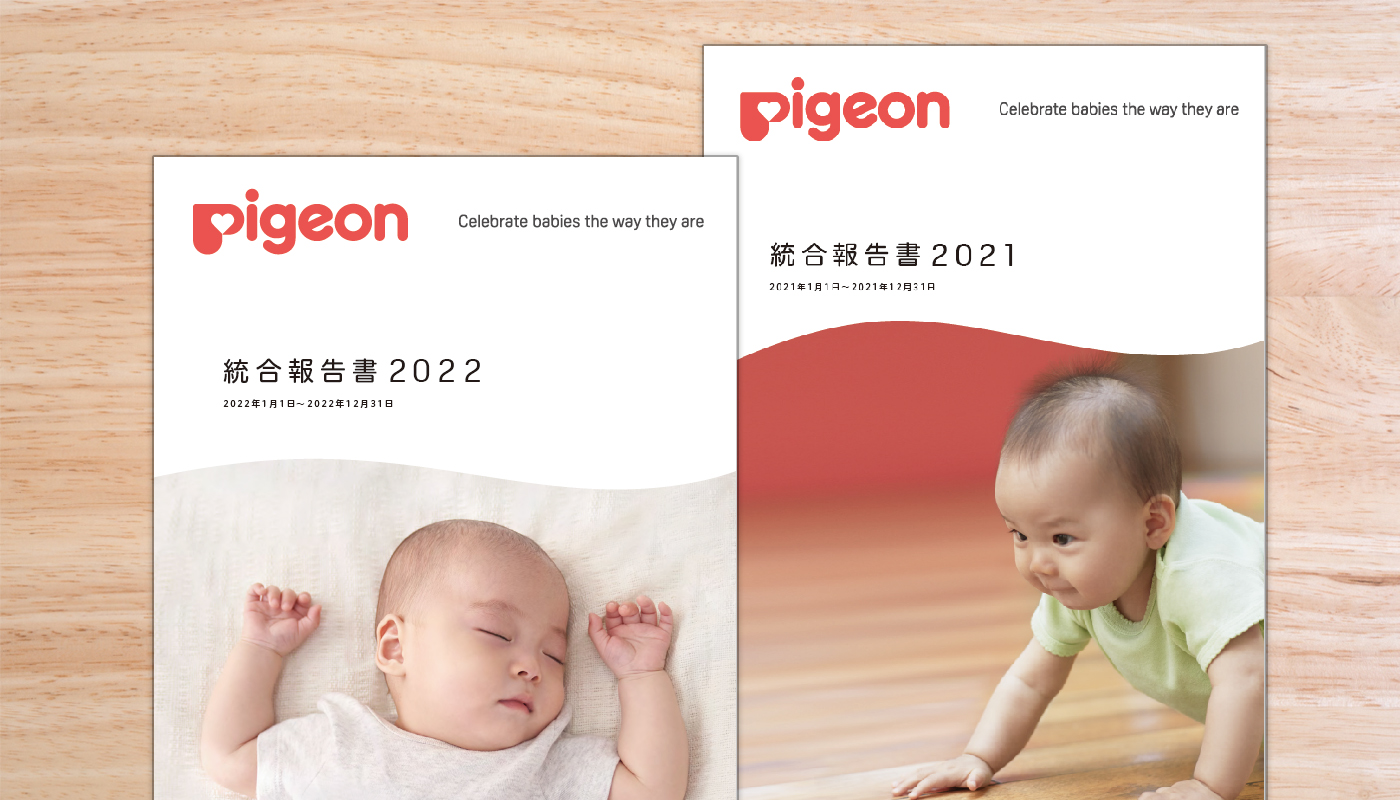By continuing to truly focus upon babies, we want to make the world more baby-friendly.
At the same time, we aim to achieve sustainable growth as a company by reducing environmental impact and solving social issues surrounding babies and mothers in all countries and regions where we conduct business activities. We particularly recognize the urgency of climate change. Pigeon’s Seventh Medium-Term Business Plan identifies climate change as one of the most important management challenges and outlines measures to tackle it.
| TCFD Report | CO2 Emissions Reduction Targets and Performance |
Report in line with the TCFD Recommendations
In December 2021, Pigeon publicly declared its support for the recommendations of the Task Force on Climate-Related Financial Disclosures (TCFD). Going forward, along with analysis of climate-related risks and opportunities, we will enrich our information disclosure from the perspectives of governance, strategy, and risk management. In 2021, we performed a qualitative analysis of climate-related risks and opportunities in relation to nursing bottles, nipples, and our skincare business, and the results are disclosed in the Pigeon Group TCFD Report 2022.
Governance and Risk Management for Climate-Related Risks and Opportunities
Among the climate-related challenges facing our company, some risks have a relatively high probability in the short to medium term and are directly connected to business continuity, such as operation interruptions due to flooding. Management of these risks are centered around the GHO Risk Management Committee.
Challenges that require a more long-term perspective that cuts across multiple businesses are addressed by the Sustainability Committee, which sets medium- and long-term Group targets related to environmental conservation, including climate change, and evaluates progress made toward them.
Both the GHO Risk Management Committee and the Sustainability Committee are chaired by the Director for GHO, and both committees report the results of their deliberations to the Board of Directors.
In our 7th Medium-Term Business Plan (2020–2022), we set the companywide target of reducing CO2 emissions (Scope 1 & 2) per unit of sales by 10% in 2022 compared to 2018. This indicator is one of the non-financial indicators linked to stock remuneration for directors (excluding independent outside directors).
Strategy
1. Climate Scenario Analysis
The Pigeon Group provides a range of products and services to customers in over 70 countries around the world. We began our analysis of risks and opportunities using climate scenarios with a focus on nursing bottle, nipple, and skincare manufacturing and sales in our Japan and China Businesses, which are our core businesses.
Two scenarios were used for analysis: one in which the world makes progress toward decarbonization in order to keep the increase in average global temperature to 1.5°C (the “1.5°C scenario”), and one in which carbon emissions are high and average global temperature increases by 4°C (the “4°C scenario”). The world of 2030 (2050, for physical impacts) under these two scenarios was hypothesized as follows:
| 1.5°C scenario world | 4°C scenario world |
|
|
2. Risks and Opportunities for Our Nursing Bottles, Nipples, and Skincare Business
2-1. Changes in the Consumer Market
Nursing bottles and nipples, which are core products for Pigeon, will continue to be essential parenting products needed by babies regardless of the climate situation or policies. However, because great changes in the climate and environment are expected under the 4°C scenario—such as more common and severe natural disasters—we expect that uncertainty about the future for babies may become a factor in decreasing birth rates, which could affect sales of nursing bottles and nipples.
Under the 1.5°C scenario, consumers’ preference for ethical choices would be expected to grow stronger. This would increase the importance of product strategies focused on both making products with consideration for the environment across the entire value chain and promoting these efforts to consumers.
Under both the 1.5°C and 4°C scenarios, the climate would be expected to change and natural disasters to become more frequent. As a results, demand would be expected to rise for products that address heat, humidity, and dryness, and products that use less water than current products—or no water at all—during interruptions of water service due to drought or flood.
2-2. Policy and Regulatory Changes
Under the 1.5°C scenario, the introduction of strong decarbonization policies and regulations can be expected, and there is a risk that a carbon tax will be applied to our greenhouse gas emissions, or that these emissions will become subject to an emissions trading scheme.
Additionally, globally strengthened decarbonization policies can be expected to lead to price increases for electricity, transportation costs, raw materials containing components derived from oil palm, and plastics derived from fossil fuels. These will be factors in increasing manufacturing costs, development costs, and costs to invest in equipment, and so Pigeon will perform quantitative analysis of their financial impact in future.
2-3. Increased Incidence of Natural Disasters
Because both the 1.5°C scenario and the 4°C scenario involve average global temperatures rising even higher, they can be expected to result in higher incidence of extreme weather; more supply chain and distribution network disruption and operation stoppages due to drought, flood, and infectious disease; and repair costs when natural disasters do occur.
To maintain stable manufacturing, the Group has adopted policies involving temporarily switching production to our other manufacturing sites, buying each key raw material from at least two suppliers (dual sourcing), and other measures.
Because Pigeon uses water to formulate skincare products, clean equipment, and generate steam, we will also perform analysis and assessment of the risk of future water shortages at our skincare product manufacturing plants.
TCFD Report
For details about climate-related governance, strategy, risk management, metrics, and targets, see the Pigeon Group TCFD Report.




